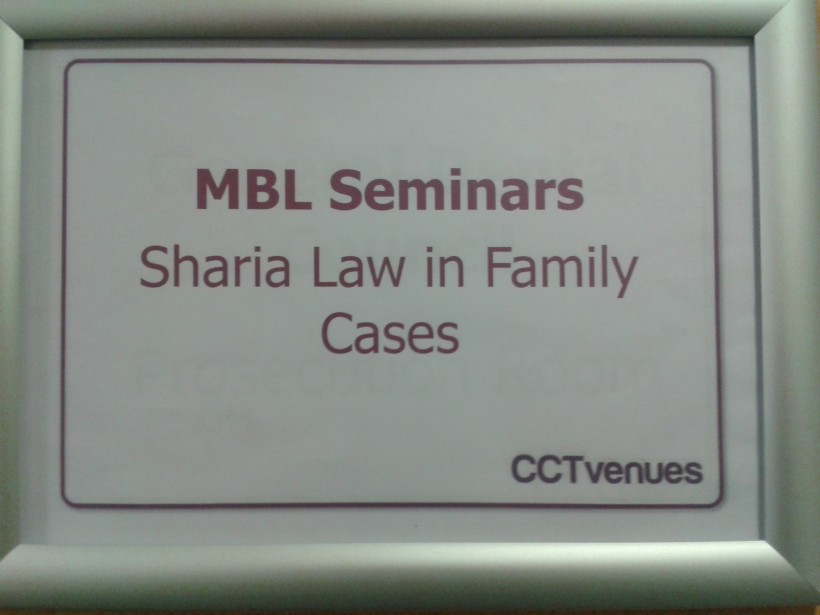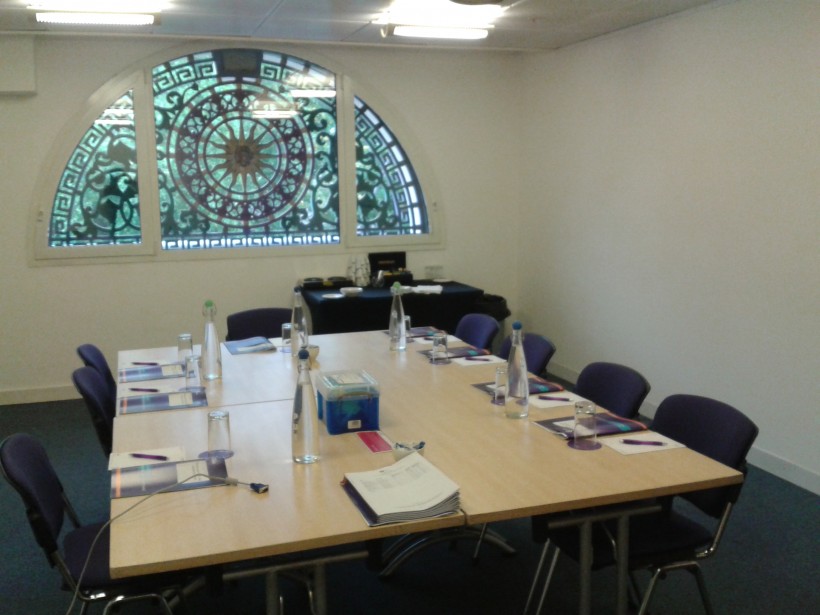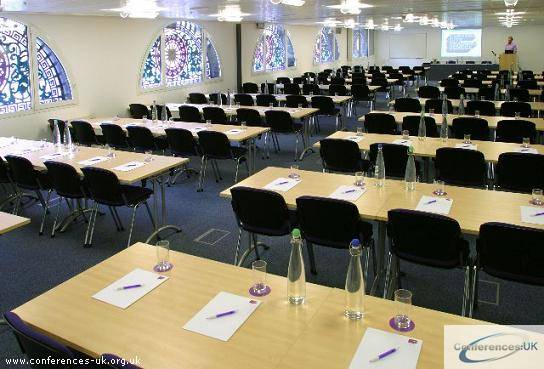Over the past decade, law firms in the UK have faced an increasing demand for expertise in the field of Islamic law. This is partly due to the fact that with globalization, more and more people are leading transnational lives: marrying in one country, divorcing in another, purchasing properties in a third and opening a business in a fourth. In some of these countries, Islamic law may apply and when a dispute occurs, expert advice may be needed to decide which law prevails: this is called ‘conflict of laws’. A famous example of such a conflict is the one that opposed a billionaire Arab Prince who secretly married a London based model, to later on deny that such a marriage had even taken place, in spite of the fact that a child was conceived. The case, widely documented by the media, is known among lawyers as “Gamal v Maktoum”.
But this is just one way through which Islamic law has entered the British legal field. Today, ten solicitors from various law firms have gathered at the CCT venue in central London to attend a training entitled: “Sharia law in family cases: solutions not problems”. The training is delivered by a leading Muslim lawyer specialised in ‘Islamic solutions’, with over 20 years of ‘PQE’ – a terminology which, I learn, stands for Post Qualified Experience and which refers to every year a solicitor holds a practicing certificate for.

The one offered today has become increasingly popular among Muslim and non-Muslim lawyers alike, due to the growing demand for ‘sharia compliant legal solutions’ coming from Muslim clients. The tutor, Khalida Yousofi*, who is regularly invited to intervene on Muslim related issues on TV and radio programs, explains that she was drowned into this field by her clients: “If you are from a Pakistani background and you are a lawyer, people think you know how to deal with their case. It became awkward to answer ‘I don’t know’ so I started to study with the help of my father who is also a lawyer and who has a good library of Islamic legal literature”.
But what does ‘sharia compliant legal solutions’ actually mean? And why is there a need for such ‘solutions’ to start with? This is what I intend to learn as I join the group of attendees gathered in the corporate-designed training room on this Friday afternoon. As an anthropologist not totally familiarised with the legal jargon, I feel somewhat conscious of my ignorance and immerse myself in the laminated brochure on display on the table. The document contains a collection of practical case studies, which highlight the plethora of issues supposed to arise in daily legal practice.
A
These ‘unregistered’ marriages become problematic when they break down, that is, when people find themselves with limited legal solutions to recover their assets. However, the fact that an Islamic marriage is a contract and not a sacrament opens a room for having the terms of this contract recognized under British law (through the provisions available in Contract, Tort & Equity). An Islamic marriage always involves the provision of ‘mehr’ to the bride. ‘Mehr’ is something of value paid either on the day of marriage or deferred to a trigger event (divorce or death of the husband). When a significant sum of money or costly jewellery are involved, it may be worthwhile for the wife to initiate legal proceeding to recover her due. A number of case laws allow clients to receive settlements without going to court, as the husband is faced with enforcement. The leading case in relation to Mehr claims is ‘Shahnaz v Rizwan’, which officially recognised the wife’s right to dower in the context of what the judge of the time (1965) named ‘Muhammadan law’. Mehr claims have become an increasing part of Khalida Youssofi’s legal practice but she is waiting for a strong case to be fought all the way to court, so that new case laws become available. “It would be a positive development for the Muslim community to see that Islamic law is recognized under British law”, she says. Indeed, Islamic family law is growing globally and legal practice demonstrates that sharia can peacefully co-exist with secular law. In her view, both Islam and British law can benefit from such a smooth integration: “Not only because Islam has encouraged mediation – a non-confrontational way to solve disputes – for 1,400 years, but also because British law offers opportunities to modernize sharia by returning to the principles that have originally given many rights to women”.
The cross-fertilisation of the legal fields has allowed the smooth integration of some sharia principles into the mainstream legal system of England. However, as I try to make sense of the narratives of experts, I wonder whether these legal experimentations participate in the Islamisation of British law – by making law professionals more acquainted with the Islamic jargon – or if Islamic law ‘translated for British ears’ is simply being secularised? What kind of sensitivities, attitudes and ways of knowing are produced through expert translation? And what shape is Islam supposed to take in order to join the rank of modern secular British law?
These fieldnotes are part of a series that document the emergence of the Islamic legal culture of the UK. In previous post, I have discussed ‘halal’ speed dating in London, ‘ethical business’ at the 9th World Islamic Economic Forum, black niqab and pink chader.
* The name of the tutor has been changed in order to preserve anonymity.









